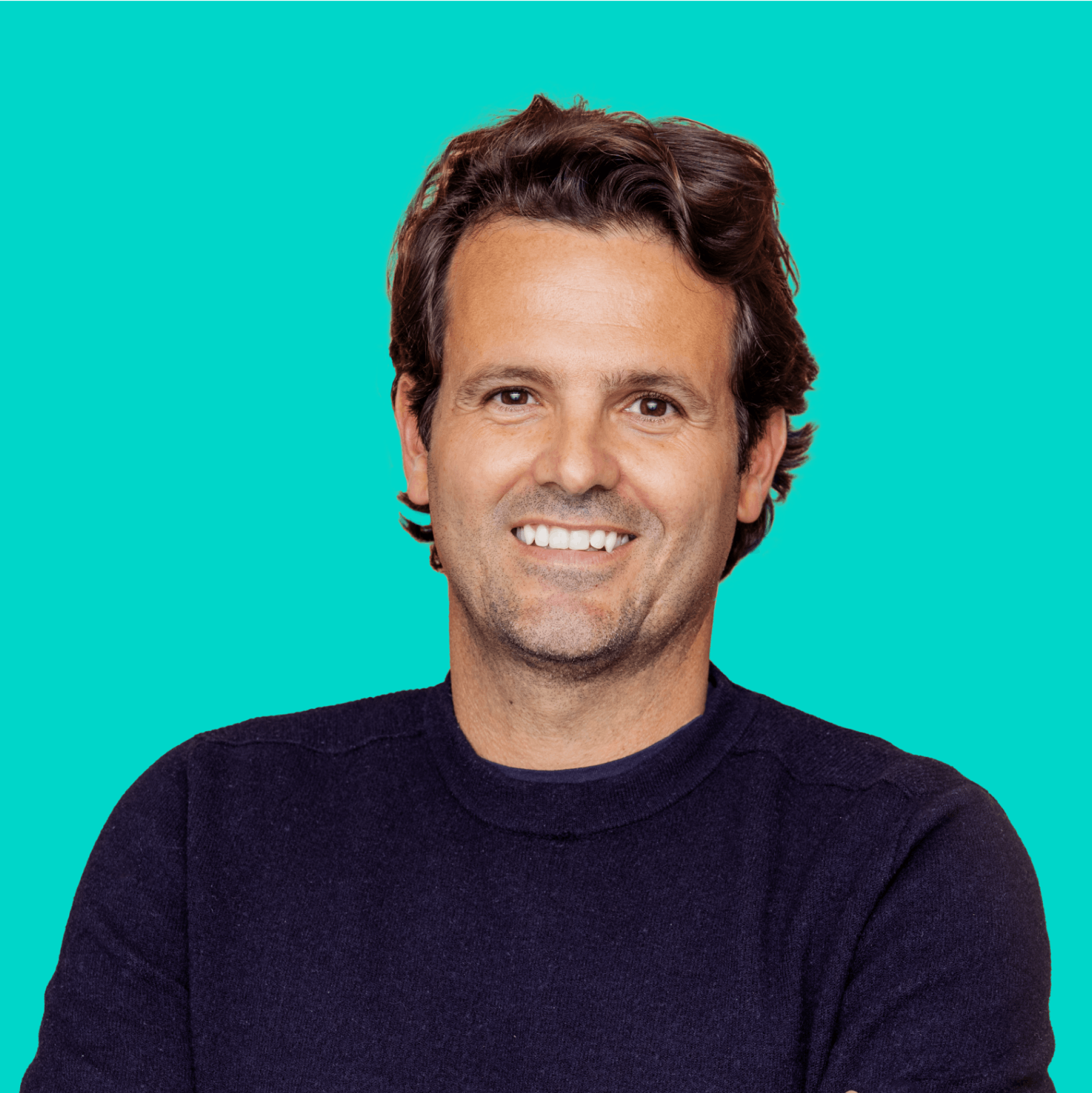Empty dropdown
Notes:Numbers do not add to 100 as respondents could choose up to three options. Founder, C-level, and Department head respondents only. Respondents who selected "Other" are excluded from the data.
In 2023 to date, tech companies headquartered in Europe have accounted for around 10% of all layoffs globally. However, the data indicates that layoffs in Europe have stabilised since the first half of the year.
Early stage companies account for almost double the number of new joiners to the industry, compared to growth stage companies.
More talent is moving across borders to start a new job in European tech than there is talent leaving for other regions - including the US.
The changing macro environment has created a new set of challenges and priorities for European tech talent. Hiring, both at the senior and junior level, is no longer a top-ranking challenge for founders, implying a cooling of the heated talent acquisition race witnessed in 2021 and 2022.
In its place, for founders reflecting on the past year and looking at the next 12 months, the challenge of managing compensation now comes in first. This mirrors the current macroeconomic climate, as both companies and employees are feeling the pressure of managing spend, inflation, and the ongoing cost of living crisis.
Interestingly, while working remotely became common practice in the wake of the Covid-19 pandemic, founders are still grappling with the challenges of managing a remote team. Each company is unique, and finding the best solution for remote team members has been a top-two ranking culture challenge for two years running.
Notably, the challenge of managing layoffs has fallen to the bottom of the list, according to 2023 survey respondents, both in terms of their experiences over the past year, as well as looking forward into 2024.

These challenges are understandable and sometimes overwhelming to businesses that have not faced them before. Senior leadership should learn from peer companies and HR experts to build clear frameworks and systems that guide teams in how to respond to trends like these. And, importantly, they should share these to all managers, upleveling the entire team. To do this, there should be the right infrastructure in place to allow companies to cascade this through their teams. This means having the right systems, processes and culture to allow each business to make appropriate decisions. This is exactly the sort of foundational work that separates the “great” from the “good” - and the clarity and empowerment it provides to employees is in itself a massive contributor to an excellent culture.
The change in sentiment around layoffs seen in our survey results is also reflected in industry data on the volume of publicly-disclosed layoffs.
The latter half of 2022 and the early months of this year marked the most challenging period for employees in the tech industry, with increased layoffs as a direct response to the financial downturn during that period. By the end of this year, almost 300,000 employees will have been impacted globally.
This global phenomenon has, of course, been severely felt in Europe. A large number of European startups have had to downsize their workforce to control costs and manage their runway. In 2023 to date, tech companies headquartered in Europe have accounted for around 10% of global layoffs.
It's important to note that these figures do not tell the full story, as many announcements on layoffs do not disclose specific numbers of impacted employees, and even more rounds of redundancies go unreported.
Nevertheless, the data underlines the fact that layoffs in Europe have shown signs of stabilising since the first half of the year. That being said, elevated layoffs should still be expected into 2024, as further companies fail to secure the funding or growth needed to sustain current cost levels.

This is where having access to experience from your board can be really useful. Though the peak of layoffs is behind us, we expect more to follow into 2024. The best advice I can give is to cut deep but try and cut only once. Don’t cut into the muscle. Let employees keep any stock under their cliff for as long as possible. Own the decision making process yourself, apologise. Support those who are staying. And above all, treat the process with respect and humility.
Even in the face of challenges in the capital markets and concerning indicators, like layoffs, that have the potential to impact the attractiveness of joining the industry, European tech is not losing its strong appeal for talent and has not seen a exodus of talent out of the industry. In fact, new positions are constantly being created, and talent from outside of tech continues to look past any perceived risk to place significant bets on the European tech sector.

Hubs like the UK’s Silicon Fen and Silicon Allee in Germany are gaining international recognition, serving as magnets for innovators from all over the world. Continuing to foster international partnerships will consolidate Europe’s position, building on its strengths in innovation and talent.
For a meaningful share of respondents, today's set of market conditions actually make for a more attractive time to be working for a European tech company. Despite conditions that have led to mass layoffs, nearly a third (29%) of respondents say that conditions have become more attractive over the course of the year, though this has decreased from 43% of respondents in 2022's survey.
Inevitably, the challenging macro backdrop for European tech has taken some shine off the perceived attractiveness of working in the industry. Around a third of all respondents (32%) feel that it is less attractive to work for a European tech company compared to 12 months ago.
Signs of the talent market easing are reflected in founder sentiment on their experience acquiring new talent. The share of founders that perceive the acquisition of talent to have eased in the past 12 months increased this year to 29% of founders, a material increase from 25% in 2022 and, in particular, from 15% in 2021 at the height of the overheated talent market.
That said, many founders are still finding it challenging to attract the talent they need. 36% of founder respondents said hiring conditions have become harder over the past 12 months, though this is down from 49% of respondents in 2021.
The growing magnetism of the European tech ecosystem is reflected in the number of new joiners at European tech companies coming from other sectors.
The hiring curves seen in recent years mirror fluctuations in tech ecosystem sentiment. 2021 witnessed a surge in new hires, most notably within growth stage companies. The market reset then caused hiring to flatline at many companies throughout 2022. 2023, to date, has seen the number of new joiners to the tech industry grow in record volumes, a reflection of the absolute scale of the ecosystem in aggregate, as opposed to a dramatic acceleration of growth at the individual company level.
Perhaps the most surprising data here, however, is the difference in the absolute volume of new joiners between early stage and growth stage companies. While growth stage scale ups are important contributors to employee growth within the ecosystem, it is the proliferation of early stage startups that represent the true engine of job creation. Indeed, early stage companies typically account for almost double the number of new joiners to the tech industry in each period, compared to growth stage companies.
This year so far strikes an optimistic tone, with new hirings on a clear climb in the earliest stages and the growth stage also starting to pick up pace.

Yet the challenge of recruiting top-tier talent remains as daunting as ever. Strong leaders and talent are deeply committed to their current organisations, and given the challenging climate within our industry, it's difficult to persuade them to consider alternative opportunities. Employee engagement and wellbeing have become more crucial than ever for attracting and retaining talent. In an era where talent is in high demand, the organisations that prioritise the well-being, growth, and satisfaction of their employees are the ones that will ultimately thrive and build lasting relationships with their workforce.
Taking the leap to become a founder has never been an easy decision, and the changing macro environment is posing challenges to even the most experienced builders.
Unsurprisingly, perceptions around becoming a founder now compared to a year ago have shifted negatively. On average across the ecosystem, more see the prospect of being a founder today as less attractive than it was a year ago (36% of respondents, vs 26% of respondents that perceive it as more attractive). Founders themselves are even more likely than other respondents to say there has been a negative change year on year (34% of founders).
It is more important than ever to ensure that new founders have the support they need and that the European ecosystem maintains a healthy influx of new funding talent, especially since today's market conditions actually create an environment to build a company where there is less noise, less competition and greater access to potential talent.
Taking the leap into entrepreneurship is one of the bravest and most challenging choices one can make. Anybody starting a company, at any time, has to embrace a journey filled with risk, sacrifice, and personal challenges.
That's why it's essential to remove barriers to entrepreneurship in order to unlock latent talent that has the potential to succeed. To explore this, we asked survey respondents this year to share their perceptions of the greatest barriers for founders looking to start a company in Europe today.
The top responses are a lack of access to external financing (59%) and personal financial constraints (48%), followed by the uncertainty created by the macro backdrop (43%). This aligns with findings explored elsewhere in the report, that show that the market reset has led to a slowdown in the rate of new tech startup creation. Given the scale of financial barriers, entrepreneurship is a luxury for those that can afford to pursue it. It is little wonder that this leads to risk aversion being cited by many (32%) as a factor in blocking potential founders from starting a company.
Europe is an attractive destination for tech talent. Looking at the talent moving across borders to start a new job in European tech, it's clear that employees tend to follow the money.
Countries that have raised the largest amount of funding, such as the United Kingdom, France, and Germany, tend to also attract most foreign talent. This makes sense as rapidly growing companies need this influx of employees to keep expanding.
Interestingly, there are a few outliers to this trend. Switzerland, Sweden, and Norway stand out as relatively underweight in net new talent entering the country vs. the volumes of funding raised. Language skills and immigration law may be barriers for relocation to these countries.
Europe - our top countries individually, as well as the Rest of Europe - is a net beneficiary of talent movement, with more talent entering from overseas than leaving.
However, digging more into the numbers clustered under 'Rest of Europe', it becomes evident that the top funded countries are attracting talent away from smaller European ecosystems. While Ukraine was already seeing a net negative flow in talent historically, this was exasperated by the war, with tech talent leaving the country at an unprecedented scale. Other European countries suffering from significant brain drain are Belarus and Hungary.
While it is tempting to create a negative narrative around talent leaving their home countries, the so called "brain drain" does ultimately benefit the European ecosystem. Talent mobility is important to allow for cross-fertilisation as new talent brings with it a new perspective and a wealth of experience.
Talent movement is healthy for the tech ecosystem, as employees learn and become more valuable with every new experience.
While most of the European talent that leaves the continent goes to the United States, Europe is also a huge talent magnet for tech talent from the US - and attracts the same amount back - on average, netting out slightly in the green.
Canada and Australia are destinations where Europe is the most net negative. Meanwhile, India is powering Europe with thousands of tech workers, and - somewhat surprisingly - Brazil is the next biggest net contributor to talent inflows to Europe.
Europe is a net beneficiary of talent flows, attracting new starters from across the globe. That means we're gaining more international talent than we’re losing.
Notably, more talent is moving from the US to work in European tech than European talent is moving to join the US tech scene. It really illustrates the pull our companies now have. In fact, Europe is a net gainer from essentially every single region, apart from Australia and Canada.

The movement of talent across borders and into the European tech scene is a testament to the power of skills-based hiring. When you hire based on skills and abilities, you create a diverse and robust talent pool, equipped to navigate the complexities of today's tech landscape. This diversity is essential for fostering a culture of creativity and driving forward the technological prowess of Europe on the world stage. By focusing on what truly matters — skills, not just experience or education — European tech companies can harness the full potential of the global talent pool and remain competitive in an increasingly dynamic industry.
The impact of the market reset is also visible in the effects on entrepreneurship and the rate of new company formation by founders. Globally, the rate at which founders are starting new tech companies has receded by approximately 30% from its peak in 2020. This decline is reflected in the data for new tech founders in both Europe and the US.
While the decrease in companies being founded might appear concerning at first glance, there is a case to be made that this reflects a return to 'healthier' conditions.
Those who are taking the leap into entrepreneurship today face a higher bar to raise money, attract talent, and win customers. This changes the perceived risk of starting a company and, as a consequence, means that only the most committed and resilient founders are prepared to embark upon the entrepreneurial journey.
Subsequently, it is not surprising to see the share of repeat founders remaining stable, while almost all the decline is accounted for by fewer first-time founders.
What will, however, be surprising to most is the fact that the annual volume of founders starting new tech startups in Europe exceeds the US, and has done so consistently for every one of the past five years.
The idea that a tough macro environment has a Darwinian effect on the startup landscape - where only the fittest survive - is reflected to some extent in investors' sentiment on the quality of opportunities they have evaluated in 2023 compared to 2022.
39% of venture capital investors and 38% of angel investors stated in the 2023 survey that the average quality of founding teams they have taken into due diligence is greater this year compared to last. Just 14% of VCs and 17% of angels had the opposing perspective.

The legacy of talent coming from companies that have had a global impact over the last few years is creating great network effects, which is playing a multiplying role in the European tech ecosystem. The improvement in the volume and quality of capital for European tech companies is having a huge impact, and has opened the possibility to build global companies from Europe end to end.
A single success story can have an outsized impact on the tech ecosystem. This is exemplified by Skype, co-founded 20 years ago by the CEO of Atomico, Niklas Zennström.
Skype's workforce absorbed a culture of innovation and subsequently went on to start Europe's next generation of leading tech companies. In total, the first- and second-generation entrepreneurs to have emerged from the Skype alumni network have gone on to start more than 900 companies across 50 countries all around the world.
This alumni network has already produced additional billion-dollar companies and, today, Skype alumni companies employ more than 65,000 people worldwide.
It's astonishing to witness the ecosystem-level effect that a single game-changing company can have over time.
The initial experience at Skype acted as a launchpad for diverse entrepreneurial ventures. The visual below illustrates a fascinating network of innovation and entrepreneurship stemming from a single origin point, Skype. What this represents is the powerful impact that a successful and influential company can have on its ecosystem.
The individuals who have branched out from Skype - the "next-generation founders" - are leveraging their expertise to shape the future of their respective industries. The various companies emerging from Skype demonstrate the diversity in expertise and talent represented.
The visualisation represents that innovation doesn't stop with one successful company. It has a ripple effect and continues to boost the European tech flywheel well after it's first established.


The surge in new companies led by serial founders – many of whom are alumni of European unicorns such as Skype or BlaBlaCar – is creating a network effect that can propel Europe into being the next tech superpower.
The story of Skype is far from unique in Europe today. In fact, the European tech ecosystem has witnessed an industry-wide surge in the number of new companies launched by individuals that have spun out of Europe's billion-dollar companies. In doing so, they benefit significantly from the established knowledge and networks they take with them.
Remarkably, nearly 9,000 companies have been initiated by alumni of European exited unicorns that were founded during the 2000s. To put this into perspective, it is nearly a staggering 50% increase compared to the unicorns founded in the 1990s.
It is not difficult to imagine how this network effect will significantly influence Europe's path in the next ten years.
In the earliest days of the European tech ecosystem, the notion of fundraising and building billion-dollar tech companies were all relatively new, and often niche. Unsurprisingly, the average founding team composition in those days was also typically composed mostly of tech 'newbies'. Over the decades that have followed, and as a growing number of early success stories emerged, the prevalence of founding teams with prior entrepreneurial experience has spiked materially.
Looking at billion-dollar companies started in the 1990s, for example, just 9% of the founders of those companies had prior entrepreneurial experience before they created these companies. By the 2010s, this figure exploded by more than four times to hit 35%.
In spite of a recent slowdown in the volume of new company creation, entrepreneurship has exploded across Europe over the past decade. Europe's never had a deeper and stronger bench of founder talent.
But it takes more than just exceptional founders to build a successful breakout company. It takes a whole team of exceptional leaders, and the ability to attract and retain top talent is a crucial factor in determining the success of any founding team. And thanks to the growing depth of Europe's talent pool, there's never been a stronger base of talent to help build the current and next generation of European tech companies.
This year, we set out to quantify this with data by developing a proprietary rating called STAR (Startup Talent Attraction Rating) to objectively assess the quality of teams by evaluating the excellence of their senior hires. We've done this with a particular focus on the strength and relevance of their professional networks, as research indicates network quality can drive commercial success. Hence, the team rating uses co-employment networks to map employees’ movement between companies.
As you'd expect, if you look at the total universe of all tech startups created in any given year, very few ever succeed in building a truly exceptional team, especially in the initial years post-founding. In fact, only around 2-3% of the total count of tech startups are rated as exceptional by this measure, even five years post-founding.
The STAR score itself is intuitive. The higher the score, the stronger the team that has been assembled.
This is brought to life when comparing the evolution of team scores over time for those companies that succeed in reaching a billion-dollar valuation vs. those that do not.
As illustrated in the chart, billion-dollar companies start their journeys with stronger teams right from the earliest years post-founding, and go on to build stronger teams over time.
Of course, there's no such thing as guaranteed success when it comes to startups, but this indicator is a helpful tool.
The concentration of capital around companies that succeed in building outlier teams is also evidenced when looking at the distribution of capital raised over time.
In the initial two years post-founding, before most companies have really had an opportunity to significantly strengthen their teams, capital is distributed more widely. As time elapses, however, more and more capital flows to the strongest teams. This is, of course, aided by the fact that there is a compounding positive effect from raising capital when it comes to building an exceptional team. The more you raise, the stronger your position when it comes to attracting, retaining and rewarding the best - and most expensive - talent.
This data can also be used to answer key questions, such as whether capital flows disproportionately to the strongest teams, or whether more companies are able to build exceptional teams in tech from Europe today compared to 10 years ago.
On the first point, the data does indeed support the idea that the stronger the team you build, the more likely you are to hit funding milestones and the greater your access to capital. At one year after founding, the share of companies that have since raised Seed stage funding have a 3x greater concentration of teams rated exceptional than the baseline for all companies. By five years after founding, the gap between the control baseline and those companies that have gone on to successfully raise across multiple critical funding milestones widens to a staggering 10x.
On the second, when comparing the concentration of exceptional teams among the 2014 cohort of founding to that of the 2023 cohort, the share of top tier teams has doubled across all stages of maturity.
Although there has been a slowdown in the number of net new joiners into the tech industry over the past six quarters, it's remarkable that in just five short years, European tech has expanded its workforce from slightly over 750,000 people to 2.3 million today.
tech employees in Europe
While talent is arriving to and leaving Europe, the continent nets out positive. With an impressive influx of non-European tech talent, Europe's tech sector continues to expand and attract global expertise.
net new people joined the European tech scene in 2023.
